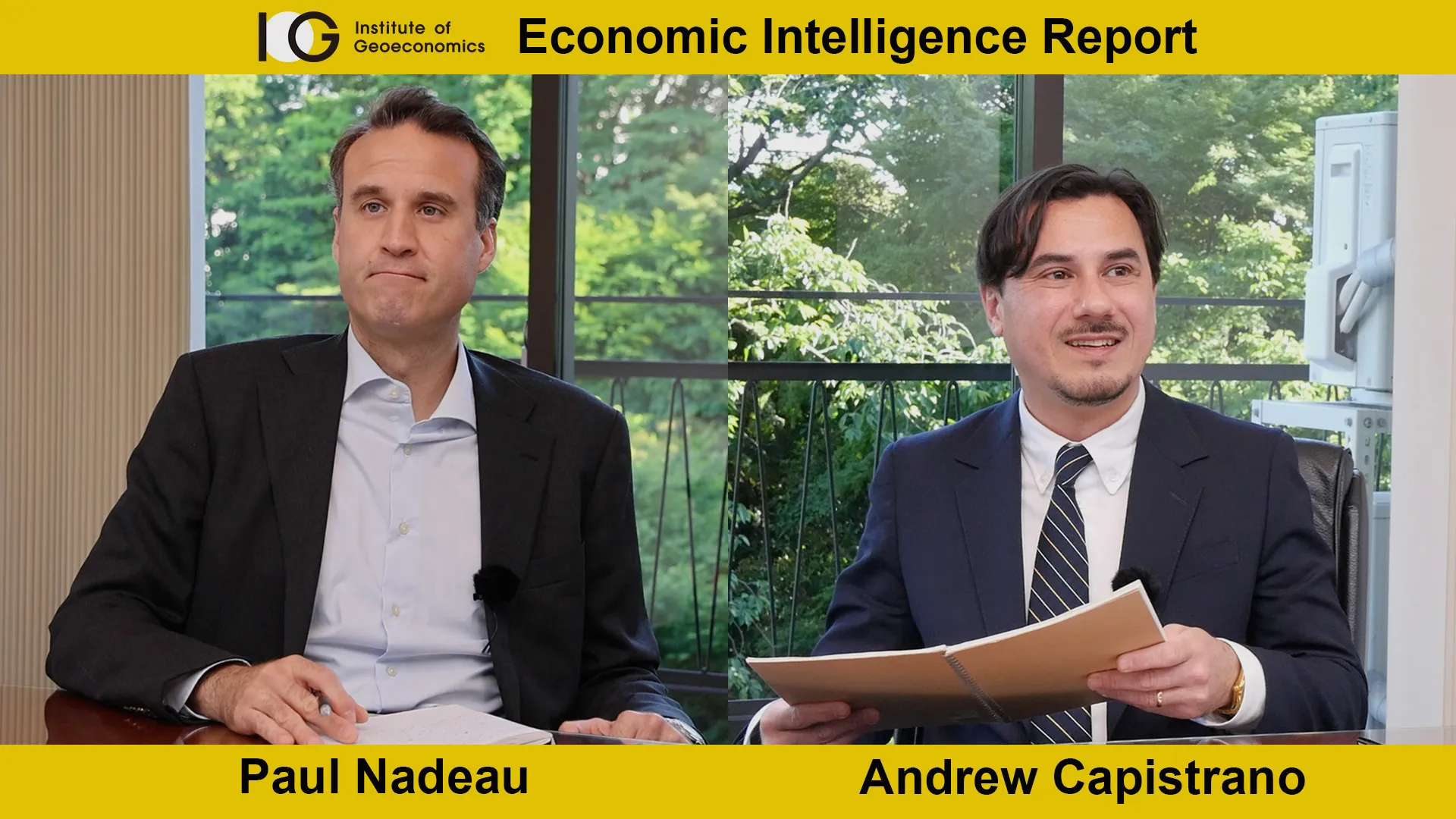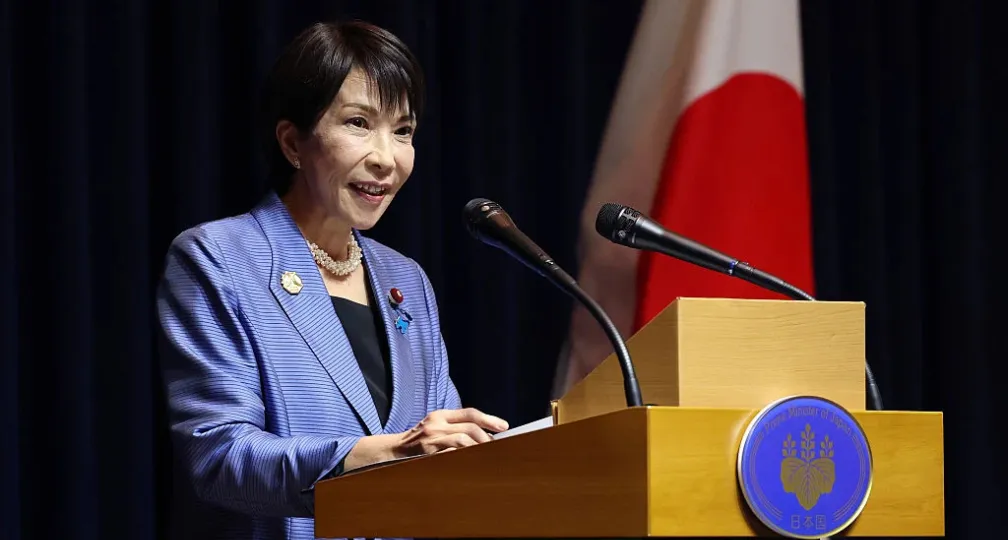IOG Economic Intelligence Report (Vol. 2 No. 9)

The latest regulatory developments on economic security & geoeconomics
Another round: Negotiators for the IPEF member states met in Singapore May 8-15 for the latest negotiation round. According to the readout from the U.S. Department of Commerce, discussions focused on pillars I (trade), II (supply chains), III (clean economy), and IV (fair economy). This was the final negotiating round before the APEC trade ministerial in Detroit, Michigan on May 27.
Counter Espionage Concerns: China’s new Counter Espionage Law, which will take effect on July 1, has drawn concern from foreign investors operating in China, as well as others, over the possibility that the law may make it more risky for foreigners to do business in China. The new law stipulates that all “documents, data, materials, and items related to national security and interests” shall receive the same level of protection as state secrets, though the law does not define the scope of “national security and interests.” It also expands the definition of espionage to include cyberattacks against state organs and critical information infrastructure. Dozens of foreign nationals have been detained by China on suspicions of espionage and the expanded definition of espionage has raised concerns that such cases could increase. In a statement, the U.S. Chamber of Commerce has said that the scope of the new law has “dramatically” increased the risks and uncertainty of doing business in China. Japan’s Chief Cabinet Secretary Matsuno Hirokazu has said that the Japanese government has advised Japanese nationals in China to be on alert regarding the revised law and has asked the Chinese government to provide a detailed explanation of the new provisions.
Targeting Transhipments: Transshipments to Russia are being considered in the European Union’s next sanctions to Russia. Ursula von der Leyen, president of the European Commission, has said that the new measures will “crack down” on circumvention of sanctions, covering transhipments of goods to Russia via third countries. The United States has pursued the use of extraterritoriality, or secondary sanctions, to expand the reach of sanctions into third countries by trying to compel non-sanctioning entities to comply with sanctions. The EU has so far resisted secondary sanctions with the argument that they impinge on national sovereignty. Specifics of any EU language on this topic is still under discussion.
No New Tariffs: The Biden administration vetoed a congressional effort to overturn the moratorium on new tariffs for solar panel equipment. In June 2022, the Biden administration suspended new tariffs on solar panels imported into the United States from Cambodia, Malaysia, Thailand, and Vietnam in the midst of a Commerce Department investigation into whether companies in these countries were circumventing tariffs on China by acting as a conduit for solar equipment from China. The final determination of that study is expected later this year. The administration’s moratorium on new tariffs is intended to act as a “bridge” to allow U.S. developers to produce solar modules and cells from the four countries which cumulatively account for 80 percent for solar panel imports into the United States. The Biden administration and solar energy industry are concerned that imposing new tariffs on these imports will be too disruptive if levied before the Commerce investigation is completed and before U.S. industry can make up the gap in production.
New Subsidy Plan: The German Federal Ministry for Economic Affairs and Climate Action announced plans to subsidize 80 percent of energy costs for energy-intensive industries. The plan is estimated to cost €25-30 billion and is targeted towards sectors such as chemicals, steel, and metals, and is also intended to encourage investment in industries necessary to reduce EU dependence on China. One reason the subsidies are so large is to counter the investments in similar sectors in Asia, with China investing more than ten times the amount that Germany previously invested in solar. Germany’s economic relationship with China is also deeper and more complex than its earlier relationship with Russia and attempts to “de-risk” the German economy from overexposure to China is a growing priority. In announcing these plans, the ministry said that it was necessary for Germany to keep pace with subsidies in China and the United States. The plan has met pushback from within Germany’s cabinet over the size of the proposed subsidies.
Analysis: Political Polarization Is a Global Problem
On May 17, U.S. President Joe Biden announced that he’d have to skip the Quad summit in Australia to attend to negotiations with congressional Republicans over raising the debt ceiling. A couple weeks earlier, U.S. National Security Advisor Jake Sullivan delivered a major speech at the Brookings Institution where, among other things, he all but swore off tariffs as a tool of U.S. economic policy. There’s a common thread linking the two events and more, like Trump’s 2016 election or the failure of the Iran nuclear deal: political polarization in the United States. U.S. domestic politics are as much of a factor – if not more – for the future of U.S. global leadership than any Sino-Russian alignment or change to the military balance in the Indo Pacific. The future of U.S. primacy won’t be settled in the Straits of Taiwan, but on the floor of the Senate and in the campaign offices of the hundreds and thousands of candidates competing across the United States, and beyond.
If nothing else, it needs to be understood that what’s been happening in the United States over the past ten years and beyond isn’t a series of aberrations. It hasn’t simply been an unusually challenging stretch for U.S. foreign policy. It’s also not the idea, popular among cynics, that Biden is effectively the same as Trump. It’s the result of what happens when domestic politics can’t sustain the strategy of a country aspiring to global leadership. Jake Sullivan touched on this in his recent speech when he blamed Republicans for stymieing parts of President Obama’s agenda for addressing climate change, infrastructure investments, and more. Sullivan is correct on the facts, but what he’s describing wasn’t simply a setback but a reflection of the larger structural issues that are going to continue to constrain U.S. foreign policy and more.
As in all democracies, governments operate through conflict and cooperation among political actors. Political parties are the particular node that connects interest groups, activists, and other stakeholders with the policymaking process. When those parties become polarized and opposition runs more deeply, it has tangible impacts on policy making. When the political parties are polarized, party conflicts become zero-sum and parties have a greater incentive to deal blows to their opponents than to converge on global strategy.
This isn’t the kind of situation that can be solved by readjusting the policy program, whether that’s trying to unify around the apparent bipartisan consensus on China or readjusting to a “worker-focused” strategy or whatever. Anyone who wants to suggest a certain set of policies to overcome the current situation needs to first explain how that set of policies can overcome the fundamental issue of polarization. It’s especially challenging on foreign policy, where the goals are multidimensional, benefits are diffuse, and the costs acute. In this case, the initiative goes to the interest groups and activists with the biggest stake in the outcomes. Appeals to material interest are limited because partisanship becomes more important than self-interest and ideology. Critiques in this setting aren’t based on rational performance assessments but through partisan lenses. Ultimately, the point isn’t “what’s best for America”, the point is find ways to compete and win. Readjusting the policy program in this context is a strategy that’s better suited to achieving intraparty cohesion and interparty differentiation rather than something that could achieve collaboration.
If anything, the United States is reverting to form. Political parties facing each other down in zero-sum competition is nothing new in U.S. political history, but the last 20-30 years are the first time when polarization has coincided with U.S. hegemony. In fact, it’s the bipartisan consensus that enabled U.S. global leadership after World War II that’s the exception rather than the norm. Paul Musgrave, a political scientist at the University of Massachusetts-Amherst, looks back at how similar situations in party politics have influenced U.S. foreign policy. When partisan polarization was higher, the United States tended to underreach, going for initiatives that were low-cost and high reward because that was the most that political cooperation (or lack thereof) could allow. Frequently the incentives led parties not to expand power, but to spoil the opposing party’s ambitions, as when, Musgrave points out, Andrew Johnson’s purchase of Alaska was almost spoiled by House Republicans frustrated with Johnson’s Reconstruction policies. In other cases, like the annexation of Texas, opinions on the question of annexation turned on partisan and sectoral affiliations. In most every case, polarization made political parties more influential in setting the course of U.S. foreign policy and electoral turnover could lead to massive shifts in strategy.
It’s a stark and challenging reminder that globalism isn’t the “default” setting in U.S. foreign policy. If anything, it’s been the exception rather than the rule. But this time, countries looking to the United States for leadership or even involvement are going to have to recon with the vicissitudes of domestic politics.
Disclaimer: The views expressed in this IOG Economic Intelligence Report do not necessarily reflect those of the API, the Institute of Geoeconomics (IOG) or any other organizations to which the author belongs.
API/IOG English Newsletter
Edited by Paul Nadeau, the newsletter will monthly keep up to date on geoeconomic agenda, IOG Intelligencce report, geoeconomics briefings, IOG geoeconomic insights, new publications, events, research activities, media coverage, and more.


Visiting Research Fellow
Paul Nadeau is an adjunct assistant professor at Temple University's Japan campus, co-founder & editor of Tokyo Review, and an adjunct fellow with the Scholl Chair in International Business at the Center for Strategic and International Studies (CSIS). He was previously a private secretary with the Japanese Diet and as a member of the foreign affairs and trade staff of Senator Olympia Snowe. He holds a B.A. from the George Washington University, an M.A. in law and diplomacy from the Fletcher School at Tufts University, and a PhD from the University of Tokyo's Graduate School of Public Policy. His research focuses on the intersection of domestic and international politics, with specific focuses on political partisanship and international trade policy. His commentary has appeared on BBC News, New York Times, Nikkei Asian Review, Japan Times, and more.
View Profile-
 Japan’s Sea Lanes and U.S. LNG: Towards Diversification and Stabilization of the Maritime Transportation Routes2026.02.24
Japan’s Sea Lanes and U.S. LNG: Towards Diversification and Stabilization of the Maritime Transportation Routes2026.02.24 -
 Fed-Treasury Coordination as Economic Security Policy2026.02.13
Fed-Treasury Coordination as Economic Security Policy2026.02.13 -
 What Takaichi’s Snap Election Landslide Means for Japan’s Defense and Fiscal Policy2026.02.13
What Takaichi’s Snap Election Landslide Means for Japan’s Defense and Fiscal Policy2026.02.13 -
 Challenges for Japan During the U.S.-China ‘Truce’2026.02.12
Challenges for Japan During the U.S.-China ‘Truce’2026.02.12 -
 India and EU Sign Mother of All Deals2026.02.09
India and EU Sign Mother of All Deals2026.02.09
 Orbán in the Public Eye: Anti-Ukraine Argument for Delegitimising Brussels2026.02.04
Orbán in the Public Eye: Anti-Ukraine Argument for Delegitimising Brussels2026.02.04 Fed-Treasury Coordination as Economic Security Policy2026.02.13
Fed-Treasury Coordination as Economic Security Policy2026.02.13 When Is a Tariff Threat Not a Tariff Threat?2026.01.29
When Is a Tariff Threat Not a Tariff Threat?2026.01.29 Oil, Debt, and Dollars: The Geoeconomics of Venezuela2026.01.07
Oil, Debt, and Dollars: The Geoeconomics of Venezuela2026.01.07 India and EU Sign Mother of All Deals2026.02.09
India and EU Sign Mother of All Deals2026.02.09














